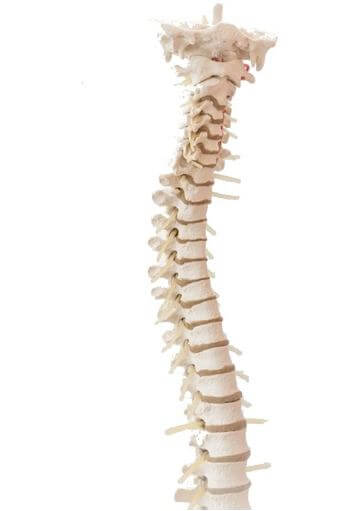New Hope of Spinal Cord Injury (SCI) Recovery
Author: American Friends of Tel Aviv University
Published: 2018/07/28 - Updated: 2023/09/16
Publication Details: Peer-Reviewed, Study
Category Topic: Spinal Cord Injury - Related Publications
Page Content: Synopsis - Introduction - Main
Synopsis: New study offers hope of recovery from spinal cord injury, novel enzyme treatment may reduce inflammation and scarring that prevent neuronal regeneration. The Tel Aviv University study finds the intravenous injection of a potent enzyme, just hours after an accident, has the potential to diminish a cascade of pathological events responsible for neuronal death, such as inflammation and scarring.
Introduction
Spinal cord injury or damage causes permanent changes in strength, sensation and other body functions. Hope of recuperation is slim to none. Now a new Tel Aviv University study finds the intravenous injection of a potent enzyme, just hours after an accident, has the potential to diminish a cascade of pathological events responsible for neuronal death, such as inflammation and scarring.
Main Content
The study was conducted by Dr. Angela Ruban of TAU's Sackler Faculty of Medicine and Dr. Yona Goldshmit of TAU's Sackler Faculty of Medicine and the Australian Regenerative Medicine Institute, Monash University. It was published in May in the Journal of Neurotrauma.
"Primary mechanical damage to spinal cord tissue kills a certain amount of neuronal cells. But there's secondary damage due to the release of excess glutamates, which are responsible for additional functional disability," Dr. Goldshmit says. "The main idea is to reduce the secondary damage as soon as possible - to block the body's natural reaction to spinal cord trauma. This is the role of the enzyme injection we devised."
"When this new treatment is available to paramedics, the consequences of injuries could be dramatically reduced," Dr. Ruban says.

Don't Wait to Diagnose
Dr. Ruban worked with the late Prof. Vivian I. Teichberg of the Weizmann Institute of Science to develop the "blood glutamate scavenging approach," a treatment based on controlling the levels of glutamate, the most abundant free amino acid in the central nervous system.
Glutamate accounts for approximately 60 percent of total neurotransmitter activity in the brain.
Dr. Ruban's research has shown the positive effect of the blood glutamate treatment in models of glioblastoma, ALS and others.
"Our takeaway is, 'Don't wait to diagnose it, treat it,'" Dr. Ruban says.
"It's similar to aspirin, which can rescue a cardiac patient from irreversible damage if taken within the first few hours of a heart attack. We suggest administering the injection even in cases of uncertain diagnosis. There's no side effect to the injection, but it might just mitigate secondary damage and dramatically improve the quality of a person's life."
According to the research, neurotrauma produces the immediate elevation of extracellular glutamate levels, which leads to inflammation, scar formation and, consequentially, neuronal death.
"Our new treatment aims to lower levels of glutamate, which is released in toxic quantities after trauma, by intravenous administration of blood glutamate scavengers (BGS), such as recombinant enzyme glutamate?oxaloacetate transaminase (rGOT1) and its co?substrate," Dr. Ruban says.
"If we manage to reduce the amount of glutamate that is released initially, we can moderate the inflammation and scarring, thereby moderating the damage to the tissue and enabling neuronal cells to survive," Dr. Goldshmit adds.
Initial Success in Mouse Models
The research team studied the neuroprotective effect of the blood glutamate scavengers in mouse models of spinal cord injury. After receiving the treatment for five consecutive days, the mice significantly recovered from the injury.
"The treatment increased the survival of neurons at the lesion site and enabled axonal regeneration into the injury site, which resulted in significant functional recovery compared with the untreated mice," Dr. Ruban concludes. "This indicates that drug intervention with blood glutamate scavengers following spinal cord injury may be neuroprotective and may create a regenerative environment."
Attribution/Source(s): This peer reviewed publication was selected for publishing by the editors of Disabled World (DW) due to its relevance to the disability community. Originally authored by American Friends of Tel Aviv University and published on 2018/07/28, this content may have been edited for style, clarity, or brevity.